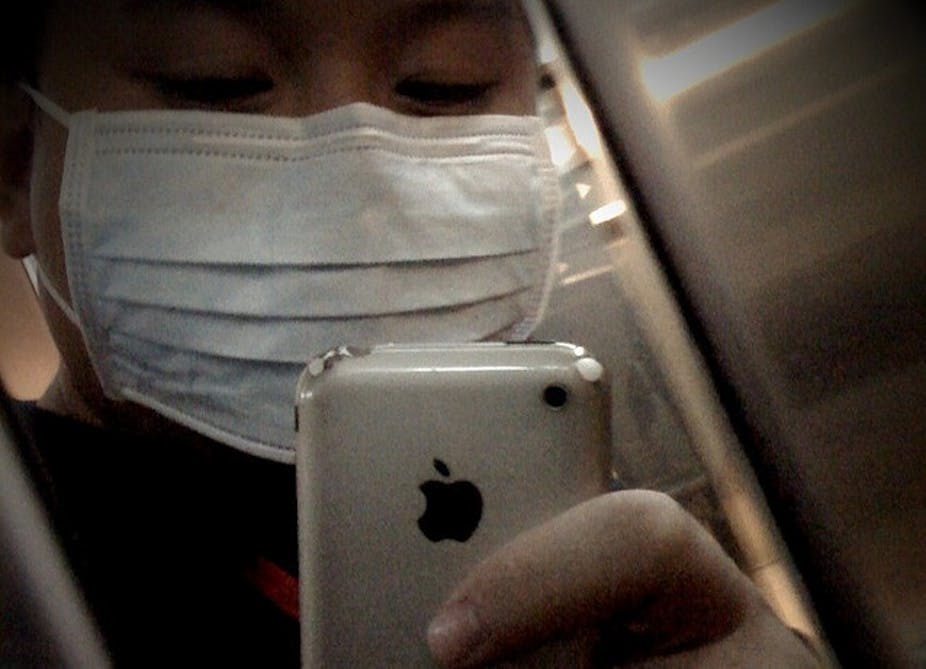Want to quit smoking, lose weight, manage your diabetes or get a good night’s sleep? No worries. There’s an app for all of that.
But it’s not always clear which medical apps are based on solid evidence and which aren’t.
We asked the experts to review eight prominent medical apps. They considered whether the apps were useful and medically accurate, and whether they would recommend using them.
Instant Heart Rate by Modula d.o.o - free*
By Merlin Thomas

It’s easy to estimate your heart rate. The hard part is doing it instantaneously, accurately, and the same way every time, while comparing it with previous readings. To be good at it, medical professionals and athletes do practice all the time. But now your iPhone can do it for you.
Place your finger gently over the camera lens on your iPhone. Instant Heart Rate uses the camera’s sensors to detect subtle changes in colour, which occur as each new pulse of oxygenated blood reaches the finger tip. The frequency of these changes over 10 to 15 seconds gives an accurate estimation of your heart rate.
While it can be used for tracking medical conditions, the most common reason for monitoring your heart rate is to gain maximum efficiency from aerobic exercise. Achieving your target heart rate will ensure you’re doing good, taxing (but not overtaxing) exercise. Your recovery heart rate can also give an indication of your progressing fitness.
Most modern aerobic exercise machines have heart rate measures built in and many committed fitness fanatics already have a gadget to measure their pulse, which doesn’t require them to stop and put their finger to their phone.
If your resolution is to start a fitness kick next year, you’ll need to do sufficient work to get your heart beating between 65% and 75% of its maximum rate. This is one free way to know you’re on track.
Calorie and Diet Tracker by MyFitnessPal - free
By Gary Sacks
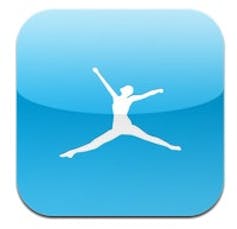
This is an excellent app for keeping track of what you’re eating. It provides easy-to-use tools to enter the foods you eat (and their associated calories) and the exercise you do. It also allows you to set weight goals. This is helpful because studies show that tracking the food you eat and your weight is a good way to reduce your overall calorie intake.
The app’s database of foods is comprehensive and, overall, it provides a number of helpful tools. For example, there are tools for calculating your Body Mass Index and basal metabolic rate (the amount of energy your body needs at rest).
But the way it estimates daily calories needed to reach your weight-loss goal is not totally accurate. If you follow the app’s guidance strictly, you might not lose exactly as much weight as it says, but you should get pretty close.
One minor complaint is that it only shows energy intake in calories. Hopefully, future updates will allow us to see things in kilojoules too.
Depressioncheck by M-3 Information, LLC - free
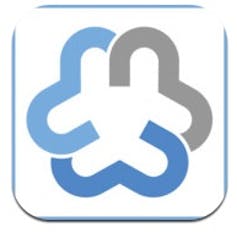
By Daniel Quintana
Depressioncheck assesses the risk of depression and other common mood and anxiety symptoms through a 27-item questionnaire (also available online).
This questionnaire, called the “M-3” checklist, has been validated for use in adults against the commonly used Mini-International Neuropsychiatric Interview. As highlighted by the app itself, it’s not a diagnostic tool but, rather, a way to screen for risk of the most common mood and anxiety disorders.
It outlines your risk for four specific conditions: depression, anxiety, post-traumatic stress disorder and bipolar disorder in less than five minutes with an acceptable degree of accuracy. But any questionnaire, whether on paper or in an iPhone app, can’t replace an assessment by a GP. And it’s important to note that circumstances such as physical illness or bereavement can inflate your score.
If you indicate any thoughts of suicide, the app asks if you’re in a crisis and provides a phone number to the United States National Suicide Prevention Lifeline (or tells you to proceed to your nearest emergency department). It would be ideal if this feature was localised for each country.
Milk Monitor by Milo Creative - $2.99
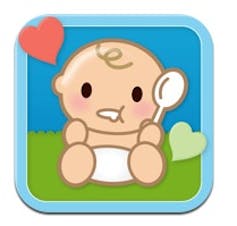
By Karen Simmer
Milk Monitor allows you to record the times of your baby’s feeds, sleeps, medications and wet and dirty nappies. Details of feeds include breast (right and left) and bottle (volume). Information can be shared by email and Twitter.
Recording this information may be useful for parents, especially those with unwell babies and for mothers who are expressing breast milk for their baby to receive at a later feed.
Mothers are often encouraged to feed their babies on demand and follow their maternal instincts, so using an app to assist in parenting a healthy baby may seem unnatural. But the reality is that for many young parents, apps are part of many activities in their daily life. For them, Milk Monitor may help with building confidence and routine. Deviation from their baby’s normal feeding pattern may signal a problem requiring medical assessment and treatment.
Milk Monitor would help those parents who want assistance with building a routine in caring for their baby. But caution is needed if entering information and worrying about details causes extra pressure and reduces the joy of motherhood or parenting.
Sleep Cycle Alarm Clock By Maciek Drejak Labs - $0.99

By Sally Ferguson
In general, we feel more refreshed more quickly if we wake from light sleep, as opposed to deep sleep. And this app aims to wake you from the light stage of sleep.
The app uses movement as an indicator of the stage of sleep. Over a 30-minute period, it gradually wakes you at the optimum time. 7am is my get-up time, so my window began at 6.30. The app mostly woke me at the start of the window, leaving me 30 minutes short each night. Over the course of the workweek I lost 2½ hours of sleep.
There is plenty of research that demonstrates the problems of cumulative sleep debt. And sleeping 30 minutes less each night is likely to be worse over time that being woken from deep sleep.
Having said that, anything that gets people thinking about their sleep, and making it a priority, is a good thing. When it was first released, friends and family members told me about their sleep patterns and how much deep sleep they were getting each night, backing it up with cool graphics produced by the app. They were genuinely interested in the biology and excited to access so much information about a process they otherwise knew very little about.
Livestrong MyQuit Coach by Demand Media, Inc. - free
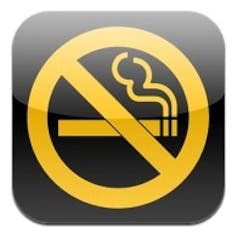
By Nasser Dhim
This app tries to assist smokers to quit by helping them modify their behaviour through tracking, setting a quit date and disrupting cravings. Almost all of the instructions provided in the app are based on accurate medical information.
There are dozens of smoking cessation apps available, many of which make exaggerated claims of effectiveness. A recent study found that the majority of smoking cessation apps were not built using evidence-based information. Livestrong MyQuit Coach seems to be based on validated smoking cessation self-help methods.
The app has the potential to be effective and has no erroneous content. Even so, it lacks information on the consequences of smoking and smoking cessation, and available treatments. Neither does it provide advice during the quitting process, especially with respect to withdrawal symptoms and how to deal with them.
Diabetes Buddy Lite by BHI Technologies, Inc. - free
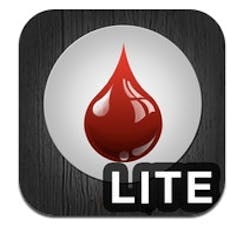
By Neale Cohen
The Diabetes Buddy Lite app has some nice features. It’s designed to help people with diabetes record and analyse their data to ensure their insulin doses are accurately adjusted, which is key to managing their condition.
With the app, manual recording of information such as blood-glucose levels, medication timing and doses is relatively user-friendly but time consuming. In an ideal world, automatic downloads from a glucose meter would be a preferred option although, so far, this has proved to be remarkably difficult to develop. This is important because testing blood glucose levels is one of the key aspects to achieving good control of diabetes. This is best done in association with dietary records (carbohydrate counting) and noting the amount and timing of exercise.
Carbohydrate counting is always a challenge and the listings here are helpful but designed for American users. A bit puzzling is the water measurement, which has very little application in this setting. The app falls a little short for health-care professionals as there’s a large amount of information available but it’s not arranged into a manageable format of times and trends.
Vision Test by 3 Sided Cube - free
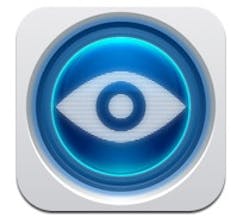
By Harrison Weisinger
The test begins with visual acuity. This assesses each eye in turn, so the app is already ahead of the game when compared with other self-tests on the web. It’s simple to use – it flashes up letters of progressively decreasing size – and makes reasonable assumptions using the test distance of “arm’s length”.
Unfortunately, if you make a mistake on a big letter, you “fail” regardless of how you do on the remaining letters. I also loaded the app onto my iPhone and had a go at the cool distance vision function. This works by allowing you to use your iPhone as the remote control for your iPad, which you position in the distance.
It doesn’t give you your acuity (tell you whether you have 20/20 vision). Rather, it recommends you get your eyes tested at the optician (a British term, and quite out of place in Australia or the United States). The “find an optician” function doesn’t work in Australia.
The remainder of the tests in the app follow suit, applying a very basic pass or fail paradigm across a couple of visual functions (colour vision, for instance) and some screening history questions. While these are all reasonable, I was disappointed that I couldn’t get any actual results.
Vision Test is a well-presented, simple app that can performs a quick “screen” of your visual acuity, colour vision and risk of eye disease and then makes the recommendation to see an optician (optometrist). Like all tests of this nature, it is no substitute for a comprehensive eye exam.
*Editor’s note: This story was originally published with an incorrect reference to Heart Rate Monitor by Cocoon $1.99. The actual application reviewed by Professor Merlin Thomas was Heart Rate Monitor by Modula d.o.o. and this has now been corrected.
Have you used these medical apps? Or can you recommend any others? Share your comments below.

